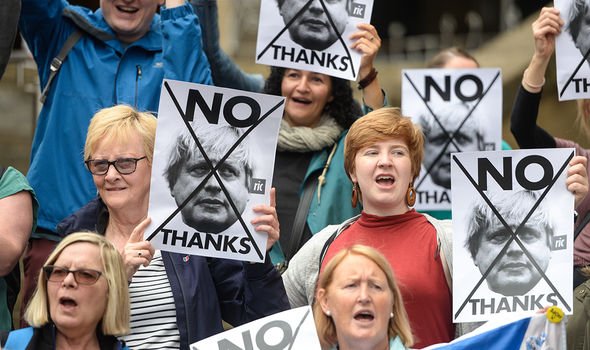After Brexit, a Scottish exit from the United Kingdom seems to be on the cards. Calls for independence have once again become the top agenda in Scotland. The Scottish First Minister has also signalled another referendum after May elections and an unilateral action if the result is a pro-independence majority in the Scottish parliament.
The last elections were a tell-tale sign of what is going on in Scotland. The spectacular victory of pro-independence and pro-referendum Scottish National Party (SNP) in these elections has boosted its chances for the victory in the elections at Scotland’s parliament, scheduled next May.
Scotland is heading for independence from the UK. This is the obvious inference to be drawn from recent opinion polls that indicate a rise in support for Scottish nationalism.
First Minister Nicola Sturgeon suggested that if there is a pro-independence majority in the Scottish parliament, regardless of whether Westminster offers its approval, her Scottish National Party (SNP) will hold a second consultative referendum after the May election. The step to threatening unilateral action coincided with the 20th opinion poll in a row that showed a majority in support of leaving the union for an independent Scotland.
The surveys, which now show a clear lead for independence, followed a grim year for the United Kingdom in which it suffered one of the highest death tolls from coronavirus and the worst recessions of any country in the world.
It also coincided with the withdrawal of Britain from the European Union, which was voted against by a strong majority of Scots.
The convergence of outrage at Brexit, mistrust of Boris Johnson and the shambolic treatment of the coronavirus pandemic by the UK government have all conspired to provide the independence movement with an optimum scenario.
The last referendum was held back in 2014 and economics of state and the union was at the forefront. It is being suggested that the same will be the case this time around, but the UK has allegedly lost the economic charm it once held.
Scotland has a successful economy, with strengths such as energy, financial services and tourism. It has a world-class university sector, is rich in natural resources, and can count on trusted institutions.
A key point for independence is that Scotland now wants to diverge from Britain after Brexit and that economic cooperation with the UK is no longer valid. The 2018 Growth Commission of the SNP outlined its refreshed Independence model. But a more radical solution, like a new currency, has been called for by many in the independence movement.
A trade-off lies therein. The poorer the alignment with the UK economic model, the greater the likelihood of “doing things differently,” but the greater the danger and upheaval in the short term.
Boris Johnson has repeatedly refused the second referendum alleging that it should be “once in a generation”. He refused to approve the second referendum saying that the two EU referendums in Britain, in 1975 and the other in 2016, were issued at a major 41-year gap.
The second referendum was to be decided in consultation with the Westminster parliament but Scotland asserted that its parliament will pass the bill preparing for an independence voting despite UK’s objection. This could challenge the UK to take legal action against the referendum, as an independence vote without the Westminster parliament’s authorisation would be illegal.
Boris is also on a visit to Scotland to visit front-line Healthcare workers helping to deliver vaccines in Scotland. He spoke on the importance of the United Kingdom in the fight against Covid-19 and to raise unity. He said that the focus should be on fighting the pandemic ‘together’ and another referendum is not the priority of the people.
Read More: With BREXIT around the corner, the independence of Scotland cannot be ruled out
Mr Johnson has repeatedly ruled out granting a section 30 order even if the Scottish parliament votes in favour of a second referendum and polls continue to show a majority for independence.
Although, some experts have suggested that the trip is in response to the rise in support for Scottish independence. If that be the case, then opinion polls do not paint a bright picture for Johnson. Johnson also has a record of offending Scot’s and have called them vermin in the past.
In the light of the events and the opinion polls, Scottish independence seems more achievable. The Union is in its worst shape due to the pandemic and Brexit and with a pro-independence set to move in the Scottish parliament, UK could very soon lose Scotland.








